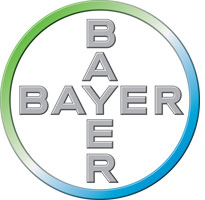Bayer finally withdraws Class I Pesticides
Success for environmental groups
Bayer CropScience announced on September 16 that it will withdraw all the WHO Class I pesticides. This phase out will be completed by the end of 2012. This announcement has been welcomed by the environmental groups that had been asking Bayer for long to phase out the toxic pesticides.
"With this commitment we fulfil our promise to end the production and marketing of these formulations," said Sandra E Peterson,CEO, Bayer CropScience in the press release. The release said that these chemicals will now be replaced by more modern, targeted and environment friendly formulations.
 Though a welcome move, environmental activists resent the fact that the German chemical giant, withdrew the pesticides not because of health concerns but economic viability.
Though a welcome move, environmental activists resent the fact that the German chemical giant, withdrew the pesticides not because of health concerns but economic viability.
“This is an important success for environmental organizations from all over the world who have fought against these deadly pesticides for decades. But we must not forget that Bayer broke their original promise to withdraw all class I products by the year 2000. Many lives could have been saved. It is embarrassing that the company only stopped sales because the profit margins of these chemical time bombs have fallen so much," said Philipp Mimkes from the Coalition against BAYER Dangers.
The German pesticide manufacturers had earlier committed to phase out Class I pesticides in 2000. Bayer, in its 1995 Annual Report had promised to “replace products with the Classification 1 of the World Health Organisation with products of lower toxicity” within five years. However, the company failed to keep its promise and it continues to sell products that contain active ingredients in WHO Class 1a (extremely hazardous) and 1b (highly hazardous), including Thiodicarb, Fenamiphos, Aldicarb and Ethoprophos.
Bayer has a world market share in pesticides of 20%. The WHO estimates the number of people who are poisoned by pesticides at three to 25 million per year. At least 40,000 people are killed accidentally by pesticides and the estimated number of unreported cases is much higher.
"We welcome this long overdue move from Bayer. We have ample evidence from the ground to prove that we don't need hazardous pesticides in our farming. NPM (Non Pesticide Management) of crops is fast-spreading in different parts of India and data shows that the incomes of farmers improve when they eliminate pesticides from their agriculture", said Kavitha Kuruganti, National Convener of Alliance for Sustainable & Holistic Agriculture (ASHA), a nationwide network of more than 400 organizations in India.
The Coalition against Bayer Dangers also demands an immediate ban on the herbicide glufosinate and a suspension of all approvals of glufosinate-resistant crops. Basta and Liberty are the trade names for Bayer's glufosinate herbicide.
A European Food Safety Authority evaluation states that glufosinate poses a high risk to mammals. The substance is classified as reprotoxic, with laboratory experiments showing premature birth, intra-uterine death and abortions in rats. The European Parliament voted to ban pesticides classified as carcinogenic, mutagenic or toxic to reproduction. Permits for 22 substances, among them glufosinate, will not be renewed.
Share this article